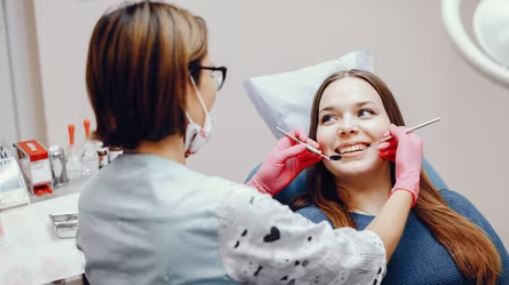As women transition into menopause, they experience a variety of hormonal changes that can affect not only their overall health but also their dental well-being. While hot flashes, mood swings, and weight fluctuations are often discussed, the impact of menopause on oral health is less commonly known. Yet, it’s vital to recognize how this stage of life may influence your smile.
The Hormonal Connection to Oral Health
Estrogen levels drop significantly during menopause, which can have a direct impact on oral tissues. This hormonal decline can lead to several dental issues, such as:
- Dry Mouth (Xerostomia): Reduced saliva flow is common, which can increase the risk of tooth decay and gum disease. Saliva helps wash away food particles and neutralize acids in the mouth. Without enough of it, bacteria can flourish.
- Gum Disease (Periodontitis): Hormonal shifts can cause inflammation in the gums, leading to bleeding, tenderness, and, in severe cases, gum recession. If untreated, it can progress into periodontitis, a more serious form of gum disease.
- Burning Mouth Syndrome: A less common but still impactful symptom, burning mouth syndrome causes a burning sensation in the mouth, lips, or tongue, which may be tied to hormone-related nerve changes.
- Bone Loss: As estrogen levels fall, the bones, including those supporting your teeth, can weaken. This could increase the risk of tooth loss if preventive measures aren’t taken.
Essential Tips for Dental Care During Menopause
- Stay Hydrated: Combat dry mouth by drinking plenty of water throughout the day. You can also use saliva substitutes or chew sugarless gum to stimulate saliva production.
- Maintain a Thorough Oral Hygiene Routine: Brushing twice a day with fluoride toothpaste and flossing regularly is essential to keep gum disease at bay. Consider using an antimicrobial mouthwash for added protection.
- Visit Your Dentist Regularly: Schedule routine dental check-ups to monitor for signs of gum disease or other oral health concerns. Your dentist may recommend special treatments or preventive care based on your hormonal changes.
- Monitor for Bone Loss: Ask your dentist about bone density scans, especially if you’re experiencing tooth mobility or other signs of weakening bones. Early intervention can prevent tooth loss.
- Hormone Replacement Therapy (HRT): For some women, HRT may help alleviate dental issues caused by hormonal imbalances. Consult with your doctor to see if this option is right for you.
Menopause is a time of transition, and while it brings many changes, there are steps you can take to maintain a healthy smile. By being proactive with your dental care, you can ensure that your teeth and gums remain strong and vibrant during and after this stage of life.








 India
India











